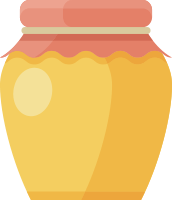Our Love of Beekeeping
Added by Kent Pegorsch on
Excerpted from Cecil Hicks' article "Addicted to Bees" that originally appeared in the American Bee Journal (April 2014).
Wisconsin resident Kent Pegorsch quickly discovered an interest in honey bees when he was introduced to beekeeping by a friend's father while he was still in high school back in the mid-1970's. Within a couple years he went from managing six starter hives to running a commercial level business with more than 300 colonies.
Kent explained that it wasn't long as a young adult before he expanded his bee business again and started selling Dadant beekeeping supplies from the town of Manawa, Wisconsin (current pop. 1,000), which is located in the central region of the dairy state.
In looking back, Kent claimed he was obsessed with beekeeping and the business of it. In fact, it wasn't long before he was also picking up bee package orders in Alabama for his customers and hauling them to Wisconsin.
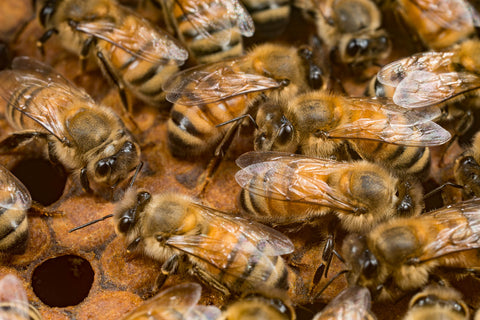
The love of bees and beekeeping is contagious
He first met his wife Bernadette in the fall of 1982. The previous spring her high school chemistry teacher, Mr. Green (who was also a sideline beekeeper) brought in a package of bees that Kent had sold him. Bernadette remembers her teacher showing the class the bee package and inviting students to come up in front of the classroom to view the bees for a better look.
As she had no interest at all in checking out the bees up close and personal, she was the only person in the class who remained in her seat. Little did she know that a couple years later she would be joining Kent and helping him drive a truck and trailer up Interstate 65 from Alabama to Wisconsin hauling 500 packages of bees.
The truck they drove hauling bee packages at that time was a Ford F-250 with a small tandem axle trailer. Kent said, Bernadette had never driven a stick shift and she had to literally stand on the clutch to hold it down to shift gears.
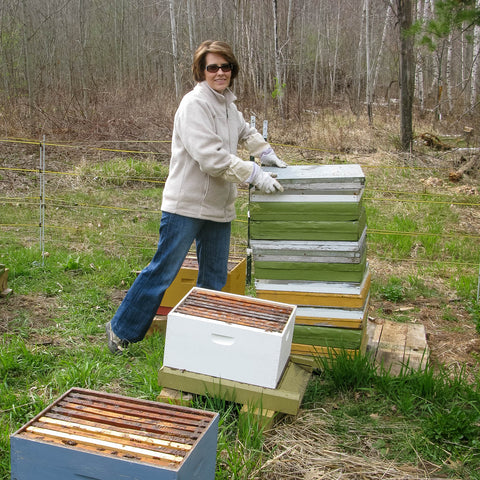
Bernadette Pegorsch working with our beehives
After they met Bernadette helped with all aspects of beekeeping. They married in 1986 and built a house in the neighboring town of Waupaca (current pop. 6,000). He describes Waupaca as a thriving small community that has the added benefit of 22 spring-fed lakes that comprise the Chain O'Lakes. This region of the state attracts many visitors to the area year round.
According to Kent, numerous family dairy farms used to dot the landscape in Waupaca County, but now very few small farms remain as they've been replaced by a few very large farms. Most of the fields have been increased in size, fence rows removed and the main crops planted are corn and soybeans. Since the family dairy farms have all but gone away, there are fewer alfalfa fields and the ones that do exist are cut prior to, or right at bloom. "Years ago, I had bees on the Amish farms that used to be in the area and they planted a lot of yellow sweet clover fields that are no longer part of the agriculture landscape around here."
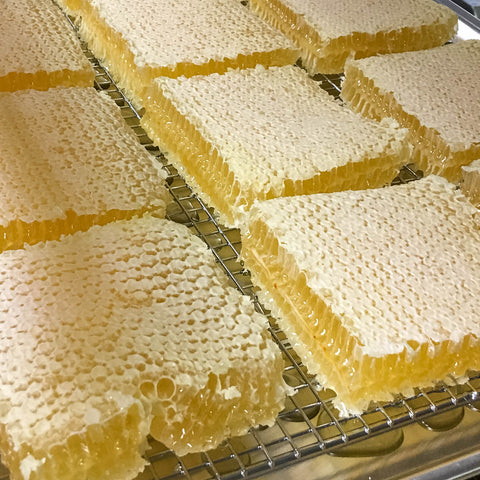
Fresh raw comb honey is our favorite bee product to produce
Kent felt fortunate that he was part of a local bee club during a time period several decades ago in the 1980's when there was a strong support group of people just starting out with their sideline/small commercial beekeeping operations. "I had people who I could chat with about my beekeeping ideas and commiserate with. Even though we were all selling honey in the same relatively small market, we never felt competitive. There always seemed to be more than enough business to go around."
Kent said the man that got him started beekeeping was named Bob Lind, a dairy farmer and sideline beekeeper who managed 35 hives. "His love of bees was contagious and I caught it from him. He not only mentored me with my first hives, but when I helped him with his bees, he'd let me use his honey house to extract my crop."
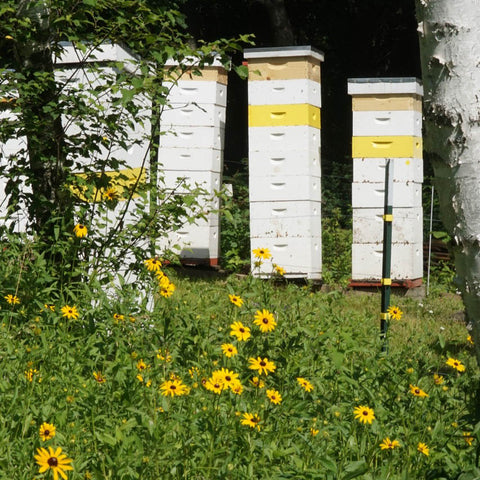
Our beehives nestled in Waupaca woodland meadows
In summarizing his beekeeping philosophy, he quoted from W. Eric Kelsey's book The Spell of the Honeybee, "The true beekeeper cleaves to his bees in spite of disappointment, loss, tragedy, or worry. Your real apiarist takes his lean and fat years in the aggregate and thinks of the heavy yields he has had in the past, or may have in the future. Losses are balanced against the pleasure he has derived from his bees. Those who hope to make a quick and easy fortune from a few hives should be discouraged at the onset."
In spite of being addicted to bees for over 40 years, Kent Pegorsch has managed to make a living in the business world, marry and raise a family in Waupaca, Wisconsin. Today he remains enthusiastic and dreams about a bountiful honey season that will produce record heavy yields.

